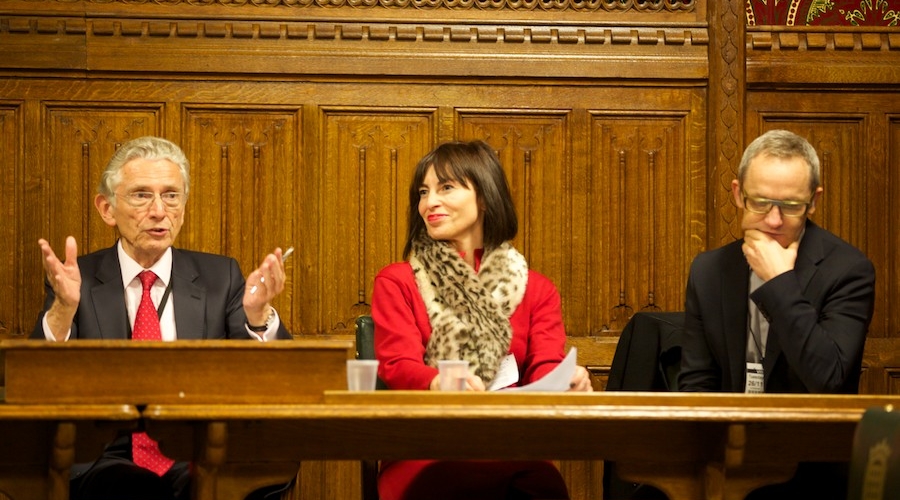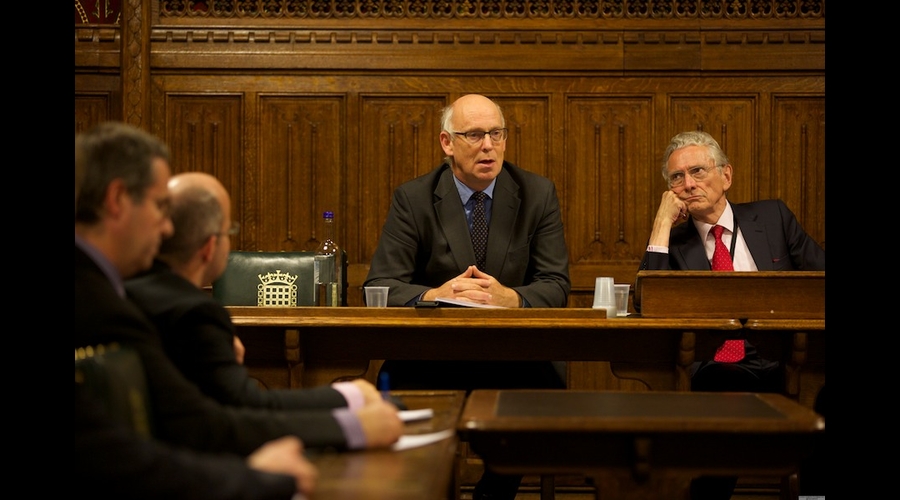The prospect of millions of viewers facing the inconvenience of a second “switchover” after 2018 without much tangible benefit – and public service broadcasters losing some free-to-air Freeview channels as capacity is reduced – was debated by experts in the Houses of Parliament.
Not, however, in the chamber, but in an event hosted by the RTS All Party Parliamentary Group and chaired by the Rt Hon The Lord Fowler on 26 November.
Theresa Wise, chief executive of the RTS, outlined the looming problem: the question of whether mobile telephony companies could end up in control of the valuable 700MHz band of spectrum that is currently used by Freeview, serving in excess of 12 million DTT homes in the UK.
She said the mobile phone operators are very keen to push for digital terrestrial television to abandon these low-power frequencies. They would then be put up for auction by the Government, and this could eventually see the alternative “fixed-line telecoms operators becoming the gatekeepers of television to the home”.
She asked:“Does the average viewer lose out?”
The debate has been fuelled by a World Radio Conference resolution of 2012, which opened the way for mobile services to challenge broadcasters across Europe for utilisation of the 694MHz-790MHz frequencies, as they seek to accommodate an apparently inexorable growth in demand for mobile services, including video.
In effect, the final decision is one that is outside of the UK’s jurisdiction, experts at the event acknowledged.
Kip Meek, director of strategy for Everything Everywhere, said: “The debate is really [about] when. I think most people in this area say mobile will get it, in 2018 [at the] earliest to 2019, 2020.”
But, he added, the mobile companies “are not gasping for another auction” and want to “use the next five years to work collaboratively and figure out a way forward”.
Meek said none of the mobile operators wants a repeat of the “overly complicated, vexed process” of the 4G spectrum auction, whose winners were announced earlier this year.
James Purnell, BBC director of strategy, warned that digital switchover went better than many people feared in 2012, because “it happened with the grain of change. There is a danger that policy makers will think it is easy to do again.”
He added that the BBC is not an advocate of the status quo, noting that, ”It may be that, because of the European desire to clear the 700MHz [spectrum band], it will be a reality.”
He said that issues of universal access, the public’s support for free-to-air services and keeping charges low, mean that public policy goals cannot be sacrificed to an auction focused on the economic value of the spectrum.
The event was produced by Sue Robertson, and a full report will be carried in the January edition of Television.
Report by Maggie Brown
Pictures by Paul Hampartsoumian



